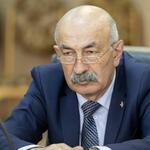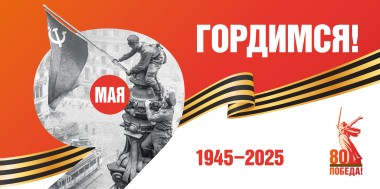The Republic of South Ossetia has been building its statehood for 30 years, despite the policy of non-recognition by Georgia and its blocking the signing of a document on the non-use of force, which would provide security guarantees,” said Murat Dzhioev, Presidential Plenipotentiary of South Ossetia.
“Moreover, it was on the day of the next round of Geneva discussions on December 11, 2020 that the first popularly elected Supreme Soviet of the South Ossetian Soviet Republic was launched thirty years ago. On December 11, 1990, the first meeting of the Supreme Soviet took place. And in 30 years we elected parliament seven times, we have all the authorities and all the attributes of the state. The Georgian authorities and their patrons need to open their eyes and recognize the existing reality, "said Murat Dzhioev.
According to him, the main task of the discussions, despite the format of the meetings, remains security issues. Work on a legally binding document has been going on since 2009, when the first drafts of the parties were presented, which diametrically diverged in positions. And therefore, to work out a joint document, time is needed, discussions and disputes are going on.
"Nevertheless, all participants in the discussions recognize the need to work on security issues and find new ways to reach agreements. The main goal is to achieve the signing of a legally binding document on the non-use of force. The work is difficult, but will continue," Dzhioev stressed.
He has added that today the Georgian side is trying to shift the Geneva process towards Russian-Georgian bilateral relations. Therefore, every time we have to prove that the discussions were created specifically to ensure the security of South Ossetia and Abkhazia on the part of Georgia, and the main contracting parties are, on the one hand, South Ossetia and Abkhazia, on the other - Georgia, and Russia, the United States and three international organizations are participants in the process.
At the last round of the Geneva discussions, the South Ossetian delegation noted the continuing chauvinist and revanchist threats in Georgia, reminding them of the recent statement by the leader of one of the political parties of Georgia, Shalva Natelashvili, "that he will personally hoist the Georgian flag over a Russian military base located in the Republic of South Ossetia." Dzhioev has reminded that the Russian military base, like the Russian military presence on the territory of the Republic of South Ossetia, complies with the bilateral Russian-South Ossetian agreements that comply with international law and has nothing to do with the territory of Georgia.
"On the contrary, the frequent exercises of NATO troops on the territory of Georgia and the rapprochement of Georgia with NATO is a factor destabilizing the situation in the region as a whole. NATO is strengthening the Georgian military forces, which is a factor of tension, especially this year against the background of events in one of the regions. Therefore, the work on a legally binding document on the non-use of force is becoming more than urgent, "the Plenipotentiary said.
Other threats
During the dialogue, other threats to our region were also discussed, and above all, the continuing practice of the Georgian authorities to create an unfavorable image of South Ossetia in the eyes of the international community.
"Taking into account that the Georgian authorities have access to all international platforms, they impose their far-fetched, purely propaganda position, which is fundamentally at odds with the reality existing in South Ossetia, to impose on the international community," the diplomat said.
In Geneva, the South Ossetian party again noted the destructiveness of the Georgian law "On the Occupied Territories", due to which representatives of the international community cannot come to South Ossetia along the only existing road from Russia. According to the Plenipotentiary, the state border is closed by Georgia, as there are no agreements on the border.
“Therefore, we have again tried to prove to them that this law is an anachronism and does not correspond to anyone's interests or security in the region as a whole. We are ready to cooperate with all international organizations, including humanitarian ones, that respect the RSO, its people and recognize the realities of logistics, "he stressed.
Triptych and the missing
Humanitarian issues did not remain out of sight of diplomats. Plenipotentiary said that the issue of the missing citizens of South Ossetia had been raised in the first and second working groups.
"The international mediators do not have any new information yet, but they are waiting for news from the Georgian prosecutor's office. We were promised that the work in this direction will continue," he said.
The South Ossetian delegation again raised the issue of returning the triptych icon to South Ossetia, reminding again that it is illegally located on the territory of Georgia, once again told the history of the shrine in detail and noted that the return of the triptych would be, albeit a small, but important factor in the emergence of trust of the people of South Ossetia to the Georgian authorities.
"This is a purely humanitarian action, and the icon must be returned to its legitimate owners - the people of South Ossetia. We raise this issue at all meetings and intend to talk about the shrine until the icon is returned," the diplomat said.
Russian assistance
The head of the South Ossetian delegation has noted that the issue of the pandemic was also raised at the last meeting.
“We have noted that the epidemiological situation in South Ossetia is controllable and stable. We talked about the great help from Russia in the fight against COVID-19. There have been proposals for representatives of international organizations to come to South Ossetia to assess the needs, to which we have stated that the Republic is open to everyone to cooperate with, but the road to South Ossetia is only from Russia. But they don’t want that,” the Plenipotentiary said.
He has added that South Ossetian diplomats emphasized that those who want to help our Republic are doing this, in particular, he has reminded about the International Committee of the Red Cross, which has been providing all possible assistance in the fight against coronavirus.
Issues without politicization are solvable
The Incident Prevention and Response Mechanism (IPRM) continued to operate in 2020 despite the coronavirus pandemic. Two face-to-face meetings took place.
"The hotline did not stop working, with the help of which many borderland issues are resolved. In particular, this year, thanks to this format, the issues of supplying border villages with irrigation water were promptly resolved. This suggests that when there is a desire of the parties to resolve practical issues without politicization in the interests of the local border population, it can be solved, "he said.
The diplomat has added that, given the current situation with the pandemic, this year violators of the RSO state border with Georgia from the Georgian side have not be detained, but were expelled at the scene, with the exception of a few cases when, in addition to violating the border, crimes were also committed on the territory of the RSO.
The last meeting within the framework of the IPRM was held on September 24, 2020, on the South Ossetian-Georgian border, near the village of Ergnet. This was the 97th meeting. In connection with the coronavirus pandemic, a minimum number of representatives from all parties attended the meeting for security purposes.
The issues related to the situation in the territories adjacent to the state border between the Republic of South Ossetia and Georgia were discussed. An overview of incidents and incidents recorded since the last IPRM meeting (30 July 2020) was provided.
Once again, the demands of the South Ossetian side to remove the illegally established checkpoint of the Georgian police near the village of Uista (Tsnelis) and the withdrawal of all armed policemen from the South Ossetian territory were voiced. The importance of the functioning of the IPRM and the "hot line" operating under the IPRM in maintaining stability and resolving many borderland issues was emphasized.







